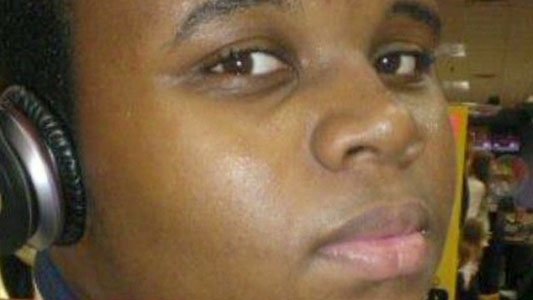Even riot-plagued Ferguson, Missouri has accepted President Barack Obama’s call to action for the My Brother’s Keeper initiative (MBK).
The small town near St. Louis where black teenager Michael Brown was gunned down by a police officer earlier this year in an incident that sparked outrage and rioting, is among 100 cities to accept what’s known as the “Community Challenge.” The challenge asks communities to bring people together to examine ways to ensure that young men have the tools needed to reach their potential.
“We’re taking MBK local,” Secretary of Housing and Urban Development Julian Castro said during a media call. “We’re putting important local leaders right at the helm of this effort,” said Castro, who was joined on the call by U.S. Transportation Secretary Anthony Foxx, Minneapolis Mayor Betsy Hodges and Deputy Secretary of Education Jim Shelton, who’s also the executive director of the My Brother’s Keeper Task Force.
Shelton directly addressed the Ferguson, Missouri police shooting of Michael Brown, saying that community leaders in the program will develop recommendations for “how you actually improve the interactions between the police and people in the community, and the kind of things that led to Michael Brown and many other young men in that community feeling like they didn’t have the opportunity they deserve, and winding up, in that particular case, in a confrontation with police.”
According to a White House press release, the president’s Community Challenge calls upon mayors, tribal leaders, town and county executives to convene a Local Action Summit with key public and private sector stakeholders to assess needs, determine priorities, and decide what combination of the above objectives they will tackle within 45 days of accepting the challenge.
Within six months of accepting the challenge, communities should publicly launch a plan of action for accomplishing their goals, which will include a protocol for tracking data, benchmarks for tracking progress, and a blueprint for how the communities will resource its efforts.
Since the initiative’s launch in February, the Obama Administration has announced several efforts to close achievement and opportunity gaps between young men of color and their white peers, including the U.S. Department of Justice starting a partnership with numerous local law enforcement agencies that should help improve the relationship between police officers and members of the community.
Part of the challenge is following through on pledges made by communities to work to keep young people safe, assist all children to read at grade level by the third grade and to increase opportunities beyond high school for minorities.
Just one day before the White House conference call, the U.S. Conference of Mayors released the findings of a survey on the nation’s mayors efforts to promote and implement the goals of the “My Brother’s Keeper Initiative.”
The survey consisted of information provided by 15 cities whose mayors are on the “My Brother’s Keeper” Task Force, including the U.S. Conference of Mayor’s Vice President, Stephanie Rawlings-Blake, the mayor of Baltimore.
“I am encouraged to share how we are working in the city of Baltimore to improve the lives of some of our most vulnerable youth,” Rawlings-Blake said.
The findings by the mayors include that in 80 percent of the cities participating, the mayor has undertaken activities to educate the public about the challenges facing young men and boys of color and, in all but two of the cities, the mayor has spearheaded efforts to encourage the involvement of business leaders, community groups, faith leaders and the public at large.
Also, 80 percent of the mayors described efforts to support locally driven activities that are more comprehensive, addressing the educational, physical, social and emotional needs of young people while also tackling issues that will help young people from the cradle to college.
Two-thirds of the cities that accepted the challenge are also supporting programs focused on increasing access to high-quality pre-K education and eliminating suspensions and expulsions in preschool and other early learning settings.
“While our efforts are broad and range from ensuring the neediest kids are enrolled in pre-K, to expanding summer programs to reach more of the most vulnerable, to creating work-based learning opportunities and internships for disconnected youth, everything is focused on the same outcome— making sure that young people have the opportunity to succeed and give back to the community that nurtured them,” Rawlings-Blake said.
